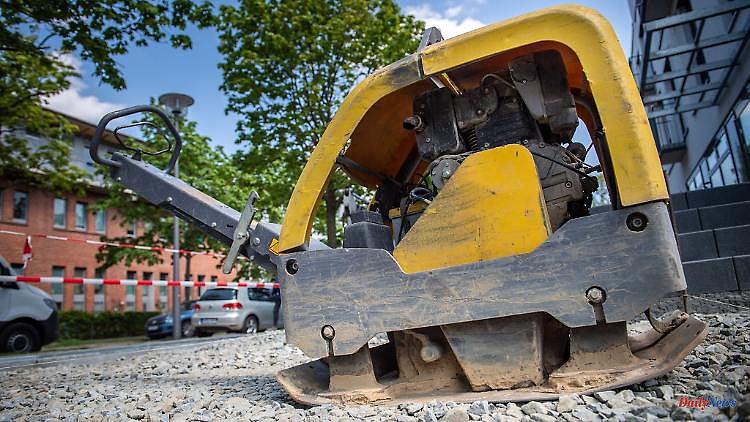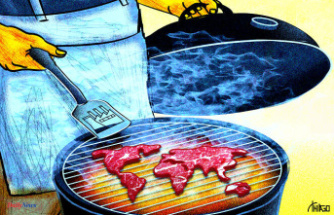Do-it-yourselfers would have it easier with some devices, for example with an excavator for digging a garden pond or a vibrator for paving the yard. You should keep that in mind when renting.
How often in life do you need a demolition hammer or a cement mixer? After all, steam cleaners, drills and hedge saws are used a little more often. But still: is it worth buying for the few uses per year?
The answer is often no. After all, who has room for all the construction machinery? And of course it is a question of money. The solution can be renting from hardware stores or specialized rental companies. You can even book staff to operate some larger devices.
One advantage: The professional models that are often offered are usually more powerful than tools for DIY needs. "These are devices that are actually intended for craftsmen and construction workers," says Norman-Marcel Dietz from the Hildesheim regional office of the Association of Private Builders. "For private users, they are usually too expensive to buy. But renting them for a few days can be worthwhile."
But not every device is suitable for the inexperienced user who wants to dig a pit or drain a basement for the first time in his life. "Safety must be the top priority," says Michael Pommer. His advice: "If you don't have any specialist knowledge, you should never borrow and operate a tool that is new to you without professional instruction. The risk of injuring yourself and others is simply too great."
An example of this is excavators. The small and medium-sized versions in particular are popular with private individuals because they make heavy work around the house and in the garden easier. "Since a driver's license is not required for a mini excavator, non-professionals are often inclined to simply sit on it and get started," says Reinhard Buchsrücker from Dekra. But some practice and technical understanding are necessary. After all, such an excavator is not a toy.
Mini excavators, in particular, easily tip over when they become lopsided. Then you should know what to do - not to jump out in panic, but to stay buckled in the safe driver's cab. And of course you should learn to avoid such accidents. "You can also tell good landlords by whether they offer instruction for their equipment and tools and how thorough this is," says Buchsrücker.
Borrowing a tool increases the do-it-yourselfer's scope for action. Many trust themselves to do work that they would have hired professionals to do before. "It's not necessarily always a positive thing," says Michael Pommer, who teaches DIY courses. "Heavy machines can also cause more damage than smaller machines. For example, it is essential to first check where pipes and lines are in the ground before you start digging with the excavator."
In order to ensure that they are not left with the costs in the event of damage, renters of construction machinery and equipment should clarify liability issues with the lender in advance. Does the lender have insurance that covers any damage? What is the renter's deductible?
There are also legal requirements for some rental devices. For larger machines such as tractors, at least a category L driver's license is required and they must be approved for road traffic. "Numerous construction machines such as cranes, excavators and bulldozers with a maximum speed of less than 6 km/h can be used without a driver's license," says Buchsrücker. And on one's own property, no driver's license is generally required.
In order for renting to be really worthwhile, the building project must be carefully planned. Because a longer rental period costs money. In general, it is worth doing the math, because renting is not always the cheapest solution. "If a project takes a long time or I need the tool from time to time, it can be more economical to buy it myself," says Norman-Marcel Dietz.
Michael Pommer from the DIY Academy takes a similar view: "Expensive machines and equipment that are only used briefly or occasionally are better rented than bought. That saves money and is ultimately more sustainable." Andres sees this with tools that are used frequently - that is, drills or cordless screwdrivers should be bought.
Especially with large devices for rent, not only the rental fee but also the costs for transport to and from the location have an impact. And that can add up over time. "Sometimes it's better to buy the construction tool and then sell it immediately after the work is done," says Dietz.
Especially since the demand for used tools is high - especially if they are in good condition and still have a guarantee. The right target group can be reached directly via internet portals or a notice in the hardware store.












